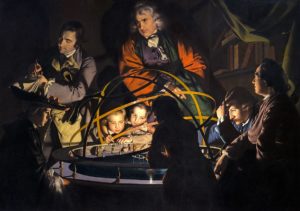 Distortion, Decentralization And Reset
Distortion, Decentralization And Reset
One of the things you’ve probably noticed as we explained how people lived in classical Rome, is that their lives weren’t terribly different from our own. After all, a great many Romans lived in comfortable homes, shopped in well-stocked markets, picked up meals at fast food shops, attended huge sporting events, traveled on roads with mile markers and rest stops, and so on. They didn’t have high technology, but that’s not necessary for a comfortable and productive life.
The Roman way of life, however, became distorted by rulership… by politics and things ordered by political processes. In fact, the rulership of Greece and then Rome (Greece was absorbed by Rome in 146 BC) often distorted daily life far more than the kings of the ancient era could. The kings could be terrifyingly bad in places and for short times; the political rulers abused at lower levels, but they could abuse everywhere at once and every day of the year, year after year.
And the more wealth and power were controlled in political ways, the more aggressive and ruthless people were attracted to politics.
As the years passed in Rome (and here we’re referring to the whole empire, not just the city), many people were pushed out of their previous ways of life. As the Roman army conquered foreign cities, it returned home with carts full of silver, gold and other valuables. The highest of the noble classes, the senators and their their families, received much of this, but were also forbidden by law from taking part in commerce (trading, operating stores, and so on). And so they bought up farm land (agricultural land), pushing out a huge number of Italian farmers as they did.
The farmer being pushed out got a nice payment out of it, but they left behind their productive work. They became jobless, and the money soon enough ran out.
Things like this happened all through the last few centuries BC, and it created a huge group of formerly-productive people who were now living in crowded cities and provided with free or cheap grain and endless entertainments by the Roman government. But they were no longer productive.
It also happened that the Roman government kept demanding more taxes. That meant that those who remained productive had to work ever-harder to afford the same house, food and their other necessities. And so normal ways of life were distorted. People adapted to these distortions, of course (and there were many kinds, over many years), but things got progressively worse for them.
Nonetheless, people found reasons to go along, rather than to pursue any change outside of politics: They told themselves that things were survivable and would even out, that they were at least doing better than their neighbors, that they needed to make as much money as possible and that going along was the best way to do it, that at least they got cheap food, and so on. This allowed the distortions to continue. Through one ruling regime after another, the amount of time and energy people spent dealing with politics increased.
At the same time, the rulers of Rome, including the upper classes, were becoming less and less honorable. They began to seek wealth and status, merely so they could display it, and in very many cases their personal conduct became worse… frequently much worse. Soon enough people lost their belief in Rome’s legitimacy: They might fear the system, they might need their relationship with their patron, but they lost their belief in the system’s goodness: they played along because they had to, not because they particularly wanted to.
Rome’s political system changed from a republic into an empire at toward end of the first century BC, but a lot of the operations, like patronage, remained the same.
And as legitimacy slowly faded, Romans stopped having children. Not everyone stopped having children, of course, but the population started to decline during this period.
It’s hard to know precisely how fast the decline was, and even harder to define the most important causes, but we’re reasonably sure the empire fell from a population of 70 or 80 million to perhaps as low as 30 million over several centuries. And we do have records of people’s opinions about this. The philosopher Seneca, at about 60 AD, said that, “With us, childlessness gives more power than it takes away.” (Seneca seems to have been implying, “You’ll be more popular.”) And the poet Juvenal wrote at about 120 AD that, “Poor women endure the perils of childbirth and the perils of nursing… but how often does a gilded bed harbor a pregnant woman?”
These quotes tell us that the ideas surrounding the people of Rome opposed parenthood. It further seems that when people have no real purpose in their lives… when they hope merely to slide through life without too much tragedy, or to merely be popular, they stop having babies.
**
Paul Rosenberg
freemansperspective.com
